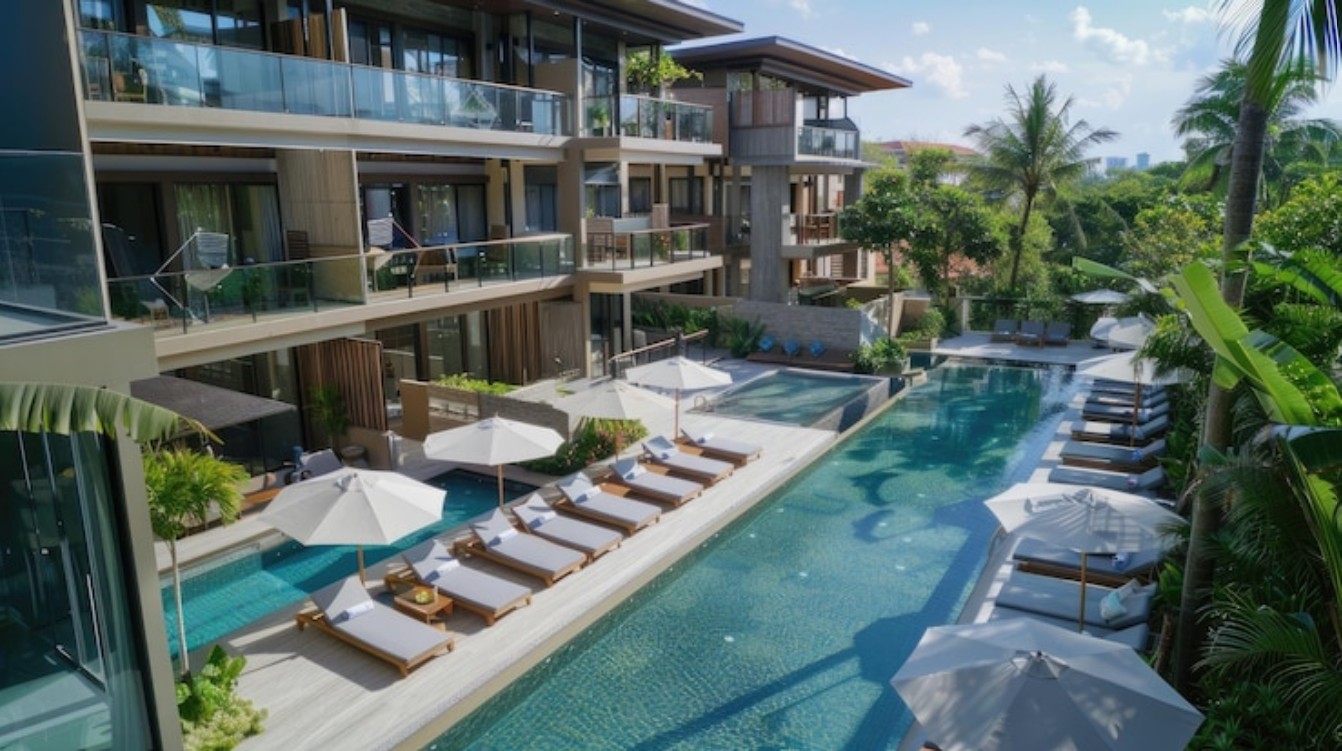Bali’s hotel sector is at a critical juncture, facing mounting global uncertainty and evolving traveler behavior.
One striking trend is the increasingly shorter hotel booking window from an average of six months to just three. This shift forces hotel operators to respond quickly and creatively, particularly in capturing the attention of younger travelers, especially Gen Z.
Ferry Salanto, Head of Research at Colliers Indonesia, emphasized that this is not a passing trend, but rather a reflection of global volatility, high domestic airfare, and changing spending habits.
“Global economic uncertainty and shorter booking windows make it difficult for hoteliers to set competitive pricing,” Ferry said.
Despite Bali Statistics Agency (BPS) reporting an uptick in international tourist arrivals to 591,221 in April 2025 (a 25.56 percent increase from March), hotel occupancy has not fully recovered.
According to Kompas.com, In May, starred hotels recorded an occupancy rate of only 58.10 percent down from 66.10 percent in the same month last year. Non-starred hotels saw only a slight increase, reaching 42.97 percent.
Australia remains the top source market, accounting for 23.59 percent of total international visitors, followed by India (8.9 percent), China (8.3 percent), South Korea (5 percent), and Malaysia (3.8 percent).
Gen Z and Wellness Tourism as Emerging Opportunities
To address these challenges, hotel operators are shifting focus to Gen Z, who are drawn to healthy lifestyles, sustainability, and authentic travel experiences.
According to Deputy Minister of Tourism and Creative Economy Angela Tanoesoedibjo, wellness and meaningful travel experiences are becoming more popular in the post-pandemic era.
Kompas.com reports, Hoteliers are encouraged to adopt eco-friendly designs, incorporate local elements, use energy-efficient technology, and personalize guest experiences such as digital check-in, AI-based booking apps, and wellness packages offering yoga, meditation, healthy cuisine, and eco-tours.
Ferry added, “Package authentic experiences like tours to Lempuyangan Temple, Tirta Gangga, or cultural villages. Collaborate with the Ministry of Transportation to offer affordable travel packages aligned with the ‘Proud to Travel in Indonesia’ campaign.”
Ferry also predicts a significant increase in the supply of five-star hotels by 2026, particularly in Ubud, now a hotspot for cultural and wellness tourism. However, this expansion will intensify competition, especially in the premium segment.
School Holidays Offer a Boost
School holidays in Indonesia and Australia’s summer vacation are expected to drive hotel performance in June 2025. The long public holidays such as Pancasila Day and Eid al-Adha will also likely spur domestic travel.
At I Gusti Ngurah Rai Airport, domestic flights surged by 36.41 percent in April, with domestic passengers rising by 54.66 percent.
However, high domestic airfares often pricier than international tickets remain a barrier for local tourists.
On top of that, geopolitical uncertainty, particularly the conflict in the Middle East, threatens the European market a key source of international arrivals to Bali.
While short-term prospects remain hopeful, long-term risks loom. Hotel operators in Bali must continue to innovate, adapt their strategies, and tap into new markets from traditional hubs like Australia and China to emerging ones like India, Singapore, and Gen Z travelers as the market of the future.
Sources: Kompas.com
Feat Image: via Freepik

